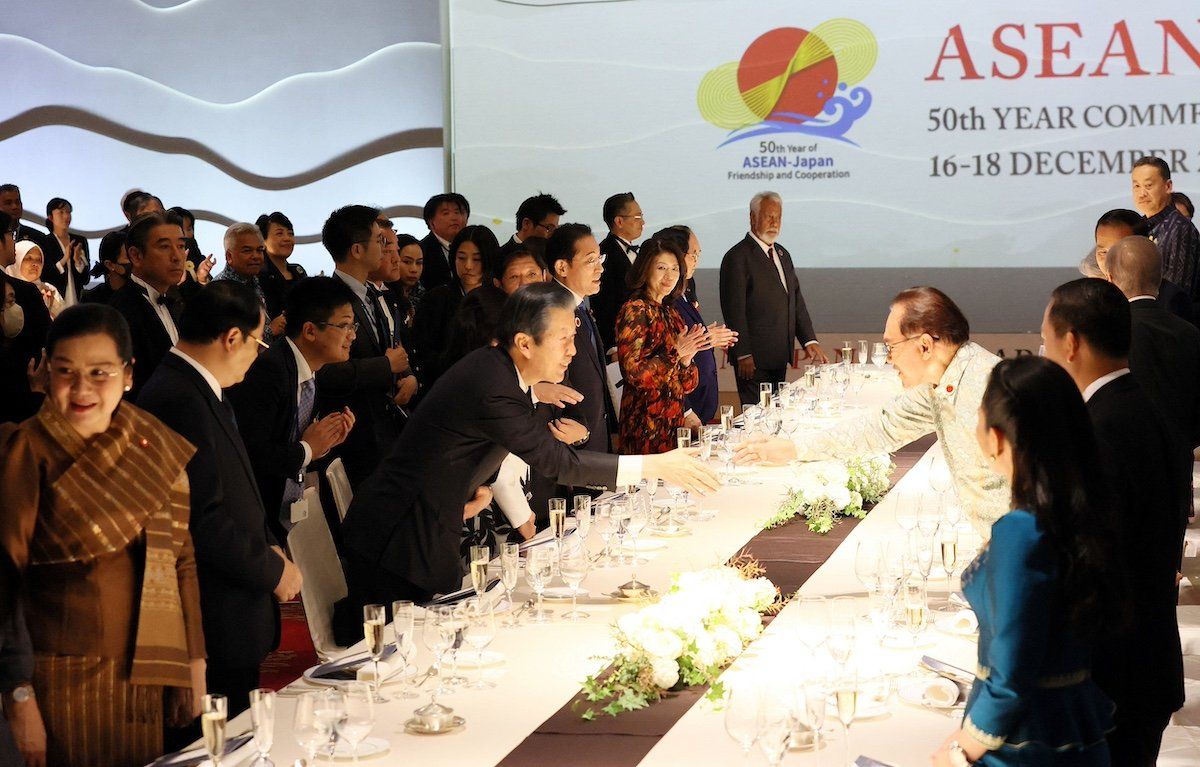Tokyo committed Sunday to providing advanced military equipment to longstanding partners in Southeast Asia and promised to have their backs in the ongoing dispute over Beijing’s claim to the South China Sea.
Japanese Prime Minister Fumio Kishida has invited leaders from the Association of Southeast Asian Nations to Tokyo to celebrate 50 years of strong formal relations. And he splashed out for the anniversary gifts:
- Tokyo committed to an implementation plan for over 130 projects with ASEAN, covering everything from the green economy transformation to cybersecurity to arms technology and equipment transfers.
- The joint leaders statement also contained language regarding “respect for sovereignty and territorial integrity” and the “renunciation of the threat or use of force" — clear references to China’s activities in the South China Sea.
- In a separate bilateral deal, Indonesia will get $63.7 million to bolster its maritime security and a Japanese-built patrol boat to boot.
- Similarly, Malaysia will get $2.8 million for “warning and surveillance” gear as part of a Japanese program to bolster law enforcement and security in friendly countries.
- The Philippines' coast guard agreed to cooperate more closely with Japan’s. Manila also received advanced Japanese radars last month and is in talks with Tokyo over a formal military pact that could allow mutual troop deployments and training.
- Also last month, Japan and Vietnam elevated their mutual relationship to a “comprehensive strategic partnership” and are discussing a potential military deal.
It’s an impressive diplomatic flex from Tokyo, and the intended — though unnamed — audience is obvious. China’s claims in the South China Seas conflict with ASEAN members’ internationally recognized maritime territories, and Beijing uses aggressive tactics to get its way, including building artificial islands where it stations troops and harrassing ships from ASEAN countries.
Just last week, Filipino and Chinese coast guard vessels collided, which Filipino President Ferdinand Marcos Jr., described as a “serious escalation.” The issue is ASEAN members don’t all see eye-to-eye on how to deal with China, with Cambodia and Myanmar close to Beijing. The impasse makes it hard to formulate a joint ASEAN response — and with up to 80% of Japanese energy imports and roughly 25% of its trade passing through the South China Sea, Tokyo can hardly afford not to bolster its regional friends.
